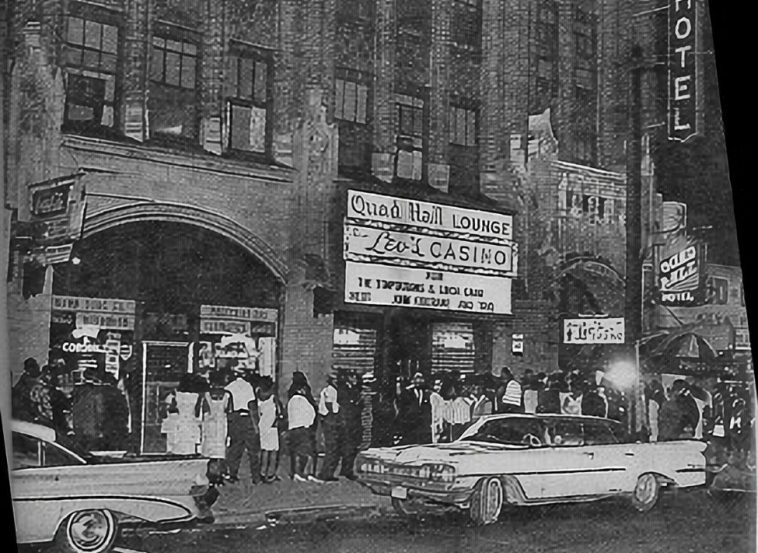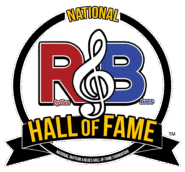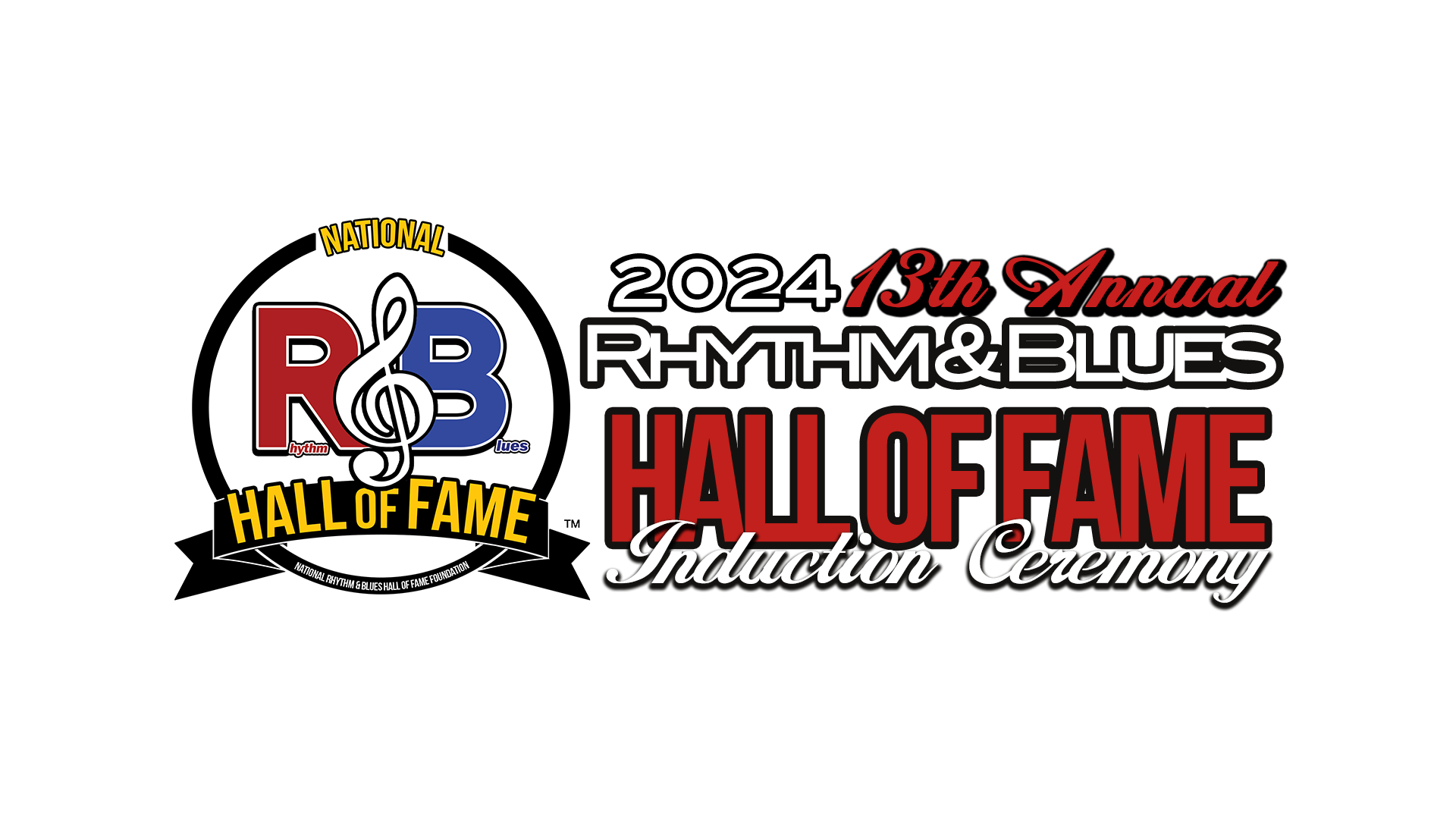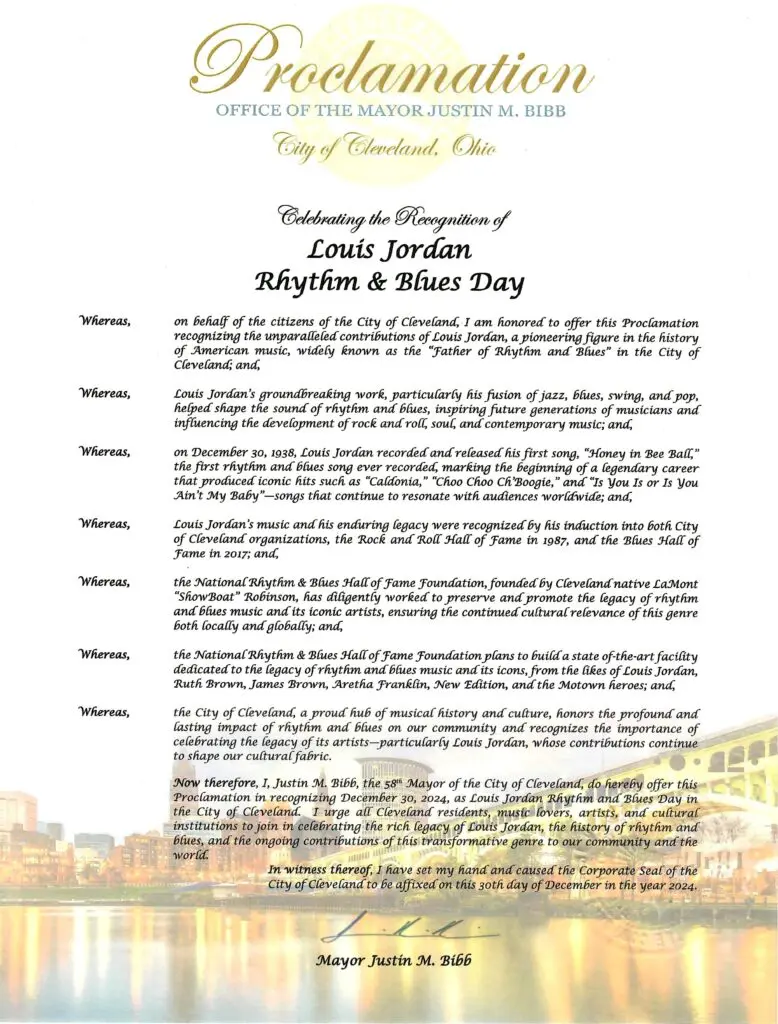History of the Chitlin' Circuit

Leo's Casino Night Club in Cleveland, Ohio was on 7500 Euclid Ave was on the Chitlin' Circuit
The Chitlin' Circuit was a collection of performance venues throughout the eastern, southern, and upper Midwest areas of the United States that provided commercial and cultural acceptance for African American musicians, comedians, and other entertainers during the era of racial segregation in the United States through the 1960s.
The Chitlin' Circuit was considered to be by, for, and about Black people. There is debate as to when the Chitlin' Circuit peaked. Some say its peak was in the 1930s, some say it was after World War II, and others say it was the time of the blues.
The name derives from the soul food dish chitterlings (boiled pig intestines). It is also a play on the term "Borscht Belt", which referred to particular resort venues (primarily in New York State's Catskill Mountains) that were popular with Jewish performers and audiences during the 1940s through the 1960s. Chitterlings are part of the culinary history of African Americans, who were often limited to the intestines of the pig to eat as opposed to bacon or ham. The food symbolizes acquiring a taste out of necessity and eventually coming to like it.
The term "Chitlin' Circuit" did not appear in print until a 1972 article on Ike & Tina Turner in The Chicago Defender. However, the slang term "Chitlin'" was used long before it was printed. Blues musician W.C. Handy wrote of chitlin' cafes in his 1917 song "Beale Street Blues". In the 21st century, the term is applied to venues, especially in the South, where contemporary African-American blues singers such as Bobby Rush, Denise LaSalle, and O.B. Buchana continues to appear regularly.
Ebony magazine prefers the term "urban theater circuit" for recent work like that of playwright and actor Tyler Perry. In a January 2004 interview with Perry, the genre's leading practitioner, Ebony wrote that his work marked "a new chapter in the urban theater circuit as a whole—a genre that has been dogged by criticism from some Blacks in the traditional theater. Perry, as the most visibly recognized player in the circuit, has felt the brunt of this criticism." "They say that Tyler Perry has set the Black race back some 500 years with these types of "Chitlin' Circuit" shows. The problem with the naysayers is that they don't take the opportunity to see my shows,' Perry argued. "With my shows, I try to build a bridge that marries what's deemed 'legitimate theater' and so-called 'chitlin' circuit theater,' and I think I've done pretty well with that, in bringing people in to enjoy a more elevated level of the theater.'"
Leading figures in establishing the Chitlin' Circuit were the Black Indianapolis entrepreneurs Sea and Denver D. Ferguson. After the collapse of the Theatre Owners Booking Association (TOBA) in 1930, the Ferguson brothers drew on bandleader and influential columnist Walter Barnes and his contacts to bring top Black entertainers to Indianapolis in the 1930s. When their businesses' licenses were revoked in 1940, they opened Ferguson Brothers, a booking agency, which grew rapidly and became the most powerful Black-owned talent agency in the country. They helped various orchestras, bands, and vaudeville shows book gigs, including Jay McShann, King Kolax, Tiny Bradshaw, Roosevelt Sykes, Claude Trenier, the Bama State Collegians, Carolina Cotton Pickers, Snookum Russell, Milton Larkin, Clarence Love, Gene Pope, and the International Sweethearts of Rhythm, and organized tours around the South playing to Black audiences. Musician Sax Kari described Denver Ferguson as "the man who invented the chitlin’ circuit".
Theaters & Nightclubs
Noted theaters and nightclubs on the Chitlin' Circuit included:
- Atlanta, Georgia: The Royal Peacock, originally The Top Hat
- Austin, Texas: The Victory Grill
- Baltimore, Maryland: The Royal Theatre
- Bay St. Louis, Mississippi: The 100 Men Hall
- Birmingham, Alabama: The Carver Theatre
- Bowling Green, Kentucky: The Quanset
- Chicago, Illinois: Robert's Show Lounge, Club DeLisa, and the Regal Theatre
- Cleveland, Ohio: Leo's Casino
- Cleveland, Ohio: Gleason Show Bar
- Detroit, Michigan: The 20 Grand
- Detroit, Michigan: The Fox Theatre
- Eatonville, Florida: Club Eaton
- Harlem, New York: Cotton Club, Smalls Paradise, and the Apollo Theater
- Hobson City, Alabama: The Men's Club, Holloway's Night Club
- Indianapolis, Indiana: The Madam C. J. Walker Theatre
- Jacksonville, Florida: The Ritz Theatre
- Lebanon, Kentucky: Club Cherry
- Lexington, Kentucky: The Lyric Theatre
- Little Rock, Arkansas: Dreamland Ballroom
- Memphis, Tennessee: Club Handy, Club Paradise
- Mobile (Prichard), Alabama: The Harlem Duke Social Club
- Pensacola, Florida: Abe's 506 Club
- Philadelphia, Pennsylvania: Uptown Theatre
- Pittsburgh, Pennsylvania: New Granada
- Richmond, Virginia: The Hippodrome Theatre
- San Antonio, Texas: Eastwood Country Club
- San Antonio, Texas: Keyhole Club (1619 West Poplar)
- Smithville, Texas: West End Park
- St. Petersburg, Florida: The Manhattan Casino
- Taylor, Texas: Chicken Shack, Hidalgo Park & One Acre Club
- Tampa, Florida: The Blue Note
- Tallahassee, Florida: The Red Bird Café
- Tulsa, Oklahoma: The Big 10 Ballroom
- Washington, D.C.: Howard Theatre
Seasonal venues included the still-standing auditorium at John Brown's Farm (also known as "the Kennedy Farm") outside Sharpsburg, Maryland; Carr's and Sparrow's Beach in Anne Arundel County, Maryland; and Rosedale Beach in Millsboro, Delaware.
According to Ruth Brown, an artist needed to play at four specific theaters to prove they had made it: the Regal in Chicago, the Howard in Washington D.C., the Uptown in Philadelphia, and the Apollo in New York City. This was called the "Lichtman chain".
The song "Tuxedo Junction" was written about a stop along the Chitlin' Circuit in Birmingham. Once the performance was over, the band would leave for the next stop on the circuit. After composing the music, Erskine Hawkins explained the reason for the title to Buddy Feyne, who created lyrics to express the concept.
Notable Performers
Notable 20th-century performers who worked on the Chitlin' Circuit included:
- Count Basie
- Peg Leg Bates
- Tiny Bradshaw
- James Brown & The Famous Flames
- Cab Calloway
- Ray Charles
- Louis Jordan
- Lucky Millinder
- Dorothy Dandridge
- Sammy Davis, Jr.
- Fats Domino
- Duke Ellington
- Ella Fitzgerald
- Little Milton[2]
- Redd Foxx
- Aretha Franklin
- Billie Holiday
- John Lee Hooker
- Roy Hamilton
- Lena Horne
- Sam Cooke
- Jackie Wilson
- Teddy Wilson
- Etta James
- Albert King
- B.B. King
- Freddy King
- Muddy Waters
- Howlin' Wolf
- Bobby "Blue" Bland
- Tyrone Davis
- Willie Hightower
- Joe Tex
- Moms Mabley
- Jay McShann
- Roosevelt Sykes
- The Dramatics
- Soul Children
- Wilson Pickett
- Richard Pryor
- Otis Redding
- Little Richard
- Ike & Tina Turner
- The Miracles
- The Jackson 5
- Gladys Knight & the Pips
- The Four Tops
- The Temptations
- The Isley Brothers
- Marvin Gaye & Tammi Terrell
- Johnnie Taylor
- Bobby Rush
- Flip Wilson
©2026 The National Rhythm & Blues Hall of Fame® Foundation. All Rights Reserved


